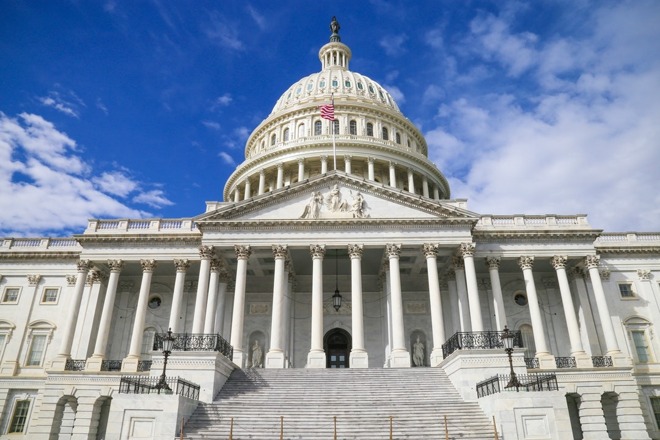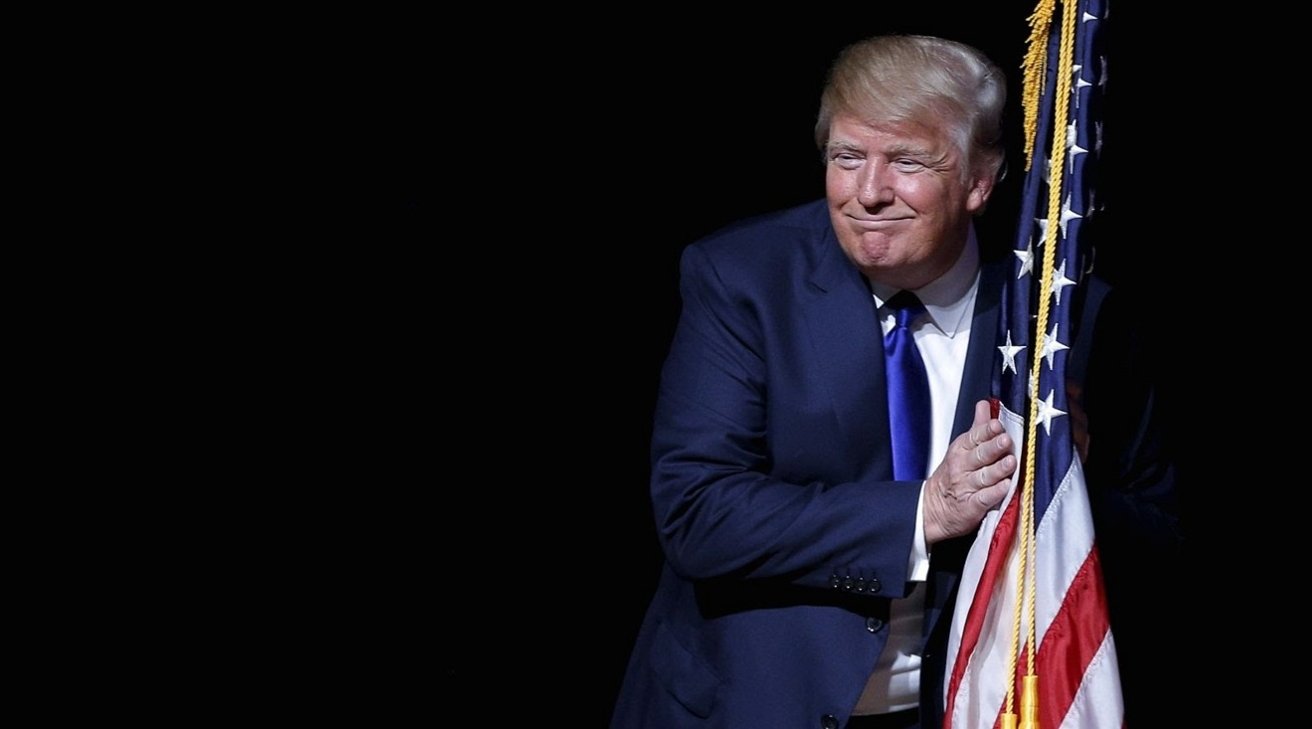The future of internet liability is uncertain as congress targets Section 230
Nearly 30 years after it was created, and after 15 years of political wrangling about it, it's beginning to look a law that protects internet companies from legal action over third-party content is on its way out.

Image credit: WikiMedia
Created in 1996, Section 230 is an amendment to the Communications Act of 1934 and is part of the larger Telecommunications Act of 1996. In part, and crucially, it says that "no provider or user of an interactive computer service shall be treated as the publisher or speaker of any information provided by another information content provider."
This meant that a platform, like GeoCities of yesteryear, wasn't legally liable for anything its users created, even if the content was illegal as long as there was a good-faith moderation effort. Essentially, it prevented "interactive computer services" from being defined as publishers.
Because it came about in the nascent days of the internet, platforms were significantly more fractured. Misinformation, hate speech, and dangerous content were harder -- but not impossible -- to find.
While the internet has arguably gotten bigger since 1996, in many ways, it's actually become quite a bit smaller. Social media platforms, like Facebook, TikTok, and X have billions of users.
Essentially, most of the internet's content comes from a handful of websites -- websites that aren't held legally responsible for how they manage said content.
Section 230's progenitors wouldn't have been able to predict the pervasiveness of social media. It's relatively easy to find illegal content on any one of the major social media platforms, and sometimes it seems even harder to avoid.
It's for this reason that lawmakers are seeking to kill off Section 230 -- sort of.
According to The Information, Democrat Senator Dick Durban and Republican Senator Lindsey Graham plan to introduce a bill that would set an expiration date of January 1, 2027, for Section 230. The proposal could come as soon as the week of March 24.
It's already gotten quite a bit of support from both sides. Josh Hawley and Marsha Blackburn, both Republicans, and Sheldon Whitehouse and Amy Klobuchar, both Democrats, have allegedly agreed to co-sponsor the bill.
A congressional aid familiar with the matter has said that the goal isn't to repeal 230 in its entirety, but rather to force the tech industry into negotiations.
"The idea would be to force them to the table, and if they don't come to the table and agree to meaningful reform, then ultimately Section 230 would be repealed," the congressional aide told The Information.
While it has its support, not everyone agrees with Congress' methods. Eric Goldman, a professor at Santa Clara University School of Law called it "a form of extortion." Adam Kovacevich, founder of tech lobbying form Chamber of Progress called it "hostage taking."
They argue that without free speech, platforms would either be overly sanitized or completely abandoned.
Again, wide support from politicians lacking the acuity to regulate tech
This effort is only the latest in a long line of efforts to modify or completely exterminate Section 230. This time around, though, it seems as though there is enough support from the government -- including from President Trump -- to get the ball rolling.

President Trump has long supported the repeal of Section 230
And, as tends to be the case, both parties have different reasons for wanting Section 230 to be changed.
Democrats' concerns often focus on plainly illegal acts being committed on platforms, while being blind to peripheral damage that would happen if the law was killed. Common Democratic focuses include drug sales prevalent on Snapchat, "sextortion" scams on Instagram, and child sex abuse material on dating apps.
Republicans, naturally, have different issues with Section 230.
While Section 230 protects companies from liability for user-posted content, it also provides "good Samaritan" protection. This protection both requires good-faith user-generated content moderation, and gives platforms the right to remove content that it does not choose to host, without fear of punishment.
Many Republicans, including Trump, see this as an attack on individuals' free speech, and often erroneously equate the changes that they want to first amendment protections. However, like the Democrats, the focus on one aspect of Section 230 ignores the side-effects of the law being eliminated.
Changes frequently put forth by Republicans effectively demand that a private platform, such as the AppleInsider forums, be required to host any and all user-generated content.
The Information keenly points out that one party believes tech companies are doing too little to protect users, while another believes they are overstepping their boundaries.
Ultimately, though, both parties are unhappy with Section 230, and it's possible that we may see sweeping changes coming to the internet should the bill gain enough support.
Read on AppleInsider

Comments
I've never really understood why Trump, et al. think Section 230 is somehow muzzling them when in fact Section 230 is what has allowed them to post malicious nonsense and get away with it.
Also, changes to the law requiring companies to allow all content will be unconstitutional since that would infringe the First Amendment rights of the site operators.
Except in this case, they're backing into the right answer. Facebook, Twitter, and most others these days are CURATORS, not just platforms that repost and relay other people's opinion. Curation IS opinion, IS editor.ial content. They are owners of that, and they've been hiding behind Section 230 to blast their own agendas and opinions while individual users are still on the hook legally and financially for their own posts.
That obviously isn't equal treatment under the law. Section 230 needs to be gutted, or killed. It's not like corporations don't have a million other avenues of protection for themselves, and where they don't, they have lawyers. Endless supplies of lawyers.
I’m not advocating for people who engage in online forums publish their personal identity, but it might be reasonable for the forum owners to be responsible for ensuring to the extent possible that they can associate online users with real people who can be held accountable for their online behavior. It’s not a perfect solution, but it might be a step in the right direction.
Yes, I participate in some forums, but I think the benefits of shutting the anti-social internet down outweigh the costs. I actually wonder if Rs in Congress feel the same way — they might prefer a world in which they don’t have to deal with the online mob and can instead focus on their donors
It's really amazing how so many people, especially those who have benefited the most from Section 230, have the rather wild idea that Section 230 is somehow muzzling them or somehow giving "curators" some sort of special "immunity" to "censor" when the reality is exactly the opposite.
hypocrisy is not a good look.
That's all that repeal advocates want. You should be legally answerable for what you allow to be printed on your newspaper, broadcasted on your TV network, displayed on your highway billboard, and now, posted on your website.
Seriously, what is wrong or bad about that?
Section 230 is basically like a First Amendment Light for the internet. By removing liability for what individuals post, it allows content platforms to moderate with a light hand and individuals to express their viewpoints. Unless you are in favor of suppressing speech on the internet, it's hard to see how you could be in favor of repealing Section 230 because all Section 230 does is encourage content hosters to allow it. None of the issues you highlight will be solved by repealing Section 230.
In fact, section 230 absolutely requires moderation to qualify for its protections.